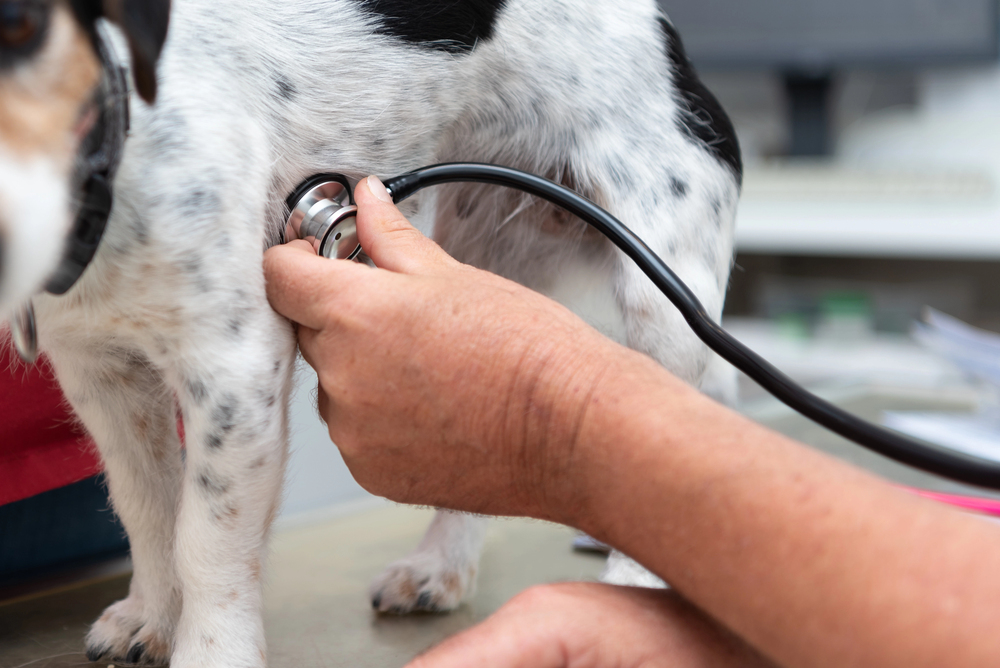
Introduction
Dogs and cats are cherished companions known for their loyalty and affection, but like humans, they can suffer from serious health conditions such as congestive heart failure (CHF). This article explores the causes, symptoms, diagnosis, and treatment options for congestive heart failure in dogs and cats, providing essential information for pet owners and enthusiasts alike.
What is Congestive Heart Failure?
Congestive heart failure (CHF) occurs when the heart is unable to pump blood effectively, leading to a buildup of fluid in the lungs (pulmonary edema) or other areas of the body. In dogs and cats, CHF is often a progressive condition that requires ongoing management to maintain quality of life.
Types of Congestive Heart Failure
Left-sided Congestive Heart Failure (LCHF)
Description: Left CHF occurs when the left side of the heart, particularly the left ventricle, fails to effectively pump blood out to the body.
Causes: Common causes include cardiomyopathy (especially dilated cardiomyopathy in dogs), valvular disease (such as mitral valve disease in small breed dogs), and systemic hypertension.
Symptoms: Pets may exhibit difficulty breathing (especially during exercise or while lying down), coughing (often worse at night), weakness, decreased exercise tolerance, and sometimes fainting.
Treatment: Management includes medications such as diuretics (e.g., furosemide) to reduce fluid buildup, ACE inhibitors (e.g., enalapril) to dilate blood vessels and reduce workload on the heart, and sometimes medications to manage arrhythmias if present.
Right-sided Congestive Heart Failure (RCHF)
Description: Right CHF occurs when the right side of the heart, particularly the right ventricle, fails to effectively pump blood to the lungs for oxygenation.
Causes: RCHF is often secondary to left-sided heart failure or conditions affecting the lungs (e.g., chronic obstructive pulmonary disease, heartworm disease).
Symptoms: Pets may exhibit abdominal distension (ascites), fluid accumulation in the limbs (peripheral edema), and difficulty breathing due to fluid accumulation in the chest cavity (pleural effusion).
Treatment: Similar to LCHF, treatment includes medications such as diuretics (e.g., furosemide) to reduce fluid buildup, medications to improve heart function (e.g., pimobendan), and addressing underlying causes such as lung disease or heartworm infection if present.
Causes and Risk Factors
Pyometra is most commonly seen in female dogs and cats that have not been spayed. The risk increases with age and multiple heat cycles. The condition is often triggered by hormonal changes during or after estrus (heat). Specifically, high levels of progesterone, which are present during the luteal phase of the heat cycle, contribute to changes in the uterus that predispose it to infection.

Diagnosis of Congestive Heart Failure
Veterinary diagnosis of CHF typically involves:
- Physical Examination: Assessing heart rate, rhythm, and signs of fluid accumulation.
- Imaging: X-rays and ultrasound (echocardiography) to evaluate heart size, chamber dimensions, and function.
- Blood Tests: To assess organ function and electrolyte levels, as well as to monitor response to treatment.
Treatment Options for CHF
Treatment for CHF aims to improve heart function and manage symptoms:
- Medications: Diuretics (e.g., furosemide) to reduce fluid buildup, ACE inhibitors (e.g., enalapril) to dilate blood vessels, and other medications (e.g., pimobendane) to improve heart contraction and manage arrhythmias.
- Diet: Low-sodium diets to reduce fluid retention and support heart function.
- Monitoring: Regular check-ups and monitoring of heart function through echocardiography and blood tests.
- Lifestyle Adjustments: Exercise moderation, stress reduction, and maintaining a stable environment for the pet.
Recovery Management
Managing CHF requires ongoing care and monitoring to optimize quality of life:
- Medication adherence and regular veterinary visits are crucial.
- Dietary management and weight monitoring are recommended.
- Avoidance of stress and careful observation for any worsening symptoms.
Prevention Tips
While some causes of CHF are not preventable, lifestyle factors can influence heart health:
- Maintain a healthy weight through diet and exercise.
- Regular veterinary check-ups to detect heart murmurs or other early signs.
- Preventative medications against heartworm disease.
Frequently Asked Questions (FAQ) about CHF
1. How can I tell if my pet is at risk for congestive heart failure?
- Pets at higher risk for CHF include those with breed predispositions (e.g., Cavalier King Charles Spaniels for mitral valve disease), senior pets, and those with a history of heart murmurs or other cardiac issues. Regular veterinary check-ups can help assess and monitor any potential risks.
2. What are the early signs of congestive heart failure that I should watch for?
- Early signs may include increased fatigue or decreased stamina during walks or playtime, subtle changes in breathing patterns (like increased panting or restlessness), and occasional coughing, especially after exercise or excitement.
3. Can congestive heart failure in pets be prevented?
- While some causes of CHF, such as congenital heart defects, may not be preventable, pet owners can reduce the risk by maintaining a healthy weight through appropriate diet and exercise, scheduling regular veterinary visits for preventive care, and following recommended heartworm prevention protocols.
4. What should I do if I notice symptoms of congestive heart failure in my pet?
- Contact your veterinarian promptly if you notice any signs such as difficulty breathing, coughing, or sudden changes in behavior or energy levels. Early detection and intervention can improve the outcome for pets with CHF.
5. What can I expect during my pet’s diagnostic evaluation for congestive heart failure?
- Your veterinarian will likely perform a thorough physical examination, which may include listening to your pet’s heart and lungs, checking for signs of fluid accumulation, and possibly taking X-rays or performing an ultrasound (echocardiography) to assess heart structure and function. Blood tests may also be recommended to evaluate organ function and electrolyte levels.
6. How is congestive heart failure treated in dogs and cats?
- Treatment typically involves a combination of medications to manage symptoms and improve heart function, including diuretics to reduce fluid buildup, ACE inhibitors to dilate blood vessels, and other medications tailored to your pet’s specific condition. Dietary adjustments, exercise management, and regular veterinary monitoring are also important components of treatment.
7. What is the prognosis for pets diagnosed with congestive heart failure?
- The prognosis varies depending on factors such as the underlying cause of CHF, the stage at which it is diagnosed, and how well your pet responds to treatment. With appropriate management and care, many pets can enjoy an extended and good quality of life.
8. How can I ensure my pet’s comfort and well-being at home with congestive heart failure?
- Follow your veterinarian’s recommendations for medication administration, dietary management (such as feeding a low-sodium diet), and exercise Provide a calm and stress-free environment, monitor your pet for any changes in condition, and maintain regular communication with your veterinarian.
9. Are there any lifestyle changes I should consider for my pet with congestive heart failure?
- Adjustments may include limiting strenuous activities, ensuring your pet has easy access to water and rest areas, and avoiding extreme Regularly weigh your pet to monitor for fluid retention and discuss any concerns or changes with your veterinarian.
10. What support and resources are available for pet owners managing congestive heart failure?
- Your veterinarian and their team are invaluable resources for information, guidance, and support. They can provide personalized care plans, educational materials, and referrals to veterinary cardiologists or specialists if needed. Online communities and support groups for pet owners facing similar challenges can also offer encouragement and shared experiences.
